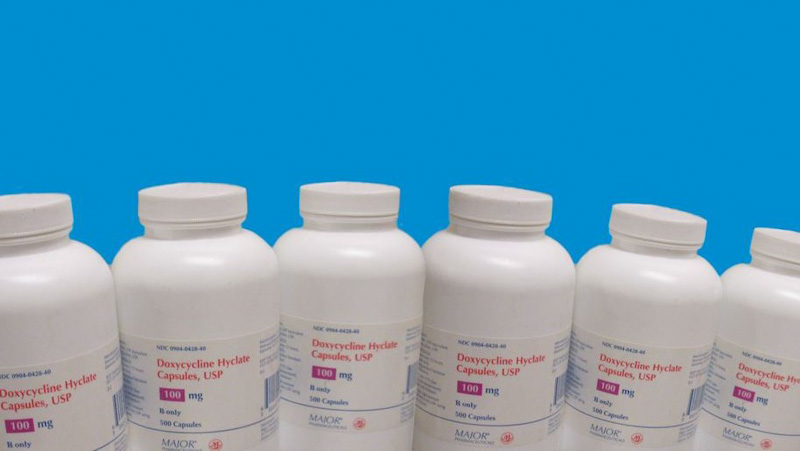Key points
- Doxycycline is the treatment of choice for Rocky Mountain spotted fever (RMSF) and all other tickborne rickettsial diseases.
- Doxycycline is recommended for presumptive treatment in patients of all ages, including those under 8 years old and pregnant women.
- Using antibiotics other than doxycycline is associated with a higher risk of fatal outcomes from RMSF.
- Doxycycline is most effective at preventing severe complications from developing if started within the first 5 days of illness.

Treatment options
Doxycycline should be used whenever possible in patients of all ages, including children of all ages and pregnant women.
Rapid desensitization
In cases of severe doxycycline allergy, rapid desensitization procedures in an inpatient setting may be considered. Physicians should carefully weigh the benefits of doxycycline use and the risks of adverse effects on a case-by-case basis with an infectious disease or other specialist.
Chloramphenicol
Chloramphenicol is the only alternative drug used to treat RMSF; however, epidemiologic studies suggest that RMSF patients treated with chloramphenicol are at higher risk for death than people who received a tetracycline-class antibiotic.
Oral formulations of chloramphenicol are not available in the United States, and use of this drug carries the potential for other adverse risks, such as aplastic anemia and Grey baby syndrome.
Sulfa-containing drugs
The use of sulfa-containing drugs may worsen clinical course and increase the likelihood of death from RMSF.
Other antibiotics
Other antibiotics, including almost all other classes of broad-spectrum antibiotics, are not effective in treating RMSF.
Post-tick bite antibiotic prophylaxis is not recommended to prevent RMSF. People who were bitten by a tick should be advised to watch for signs and symptoms and see their healthcare provider if fever, rash, or other symptoms develop within two weeks of tick bite.
Treatment for asymptomatic individuals is not currently recommended.
Other antibiotics
Other antibiotics, including almost all other classes of broad- spectrum antibiotics, are not effective in treating RMSF. The most current evidence-based information indicates that the use of doxycycline during pregnancy is unlikely to pose substantial teratogenic effects; nonetheless, it is still not possible to conclude that no risk exists. Pregnant patients should be counseled on the potential risks versus benefits when making a treatment decision.
Healthcare providers should be cautious when exploring treatments other than doxycycline, which is highly effective in treating multiple tickborne diseases including anaplasmosis, ehrlichiosis, Lyme disease, and other SFR.
Treatment recommendations
When treated with doxycycline, fever generally subsides within 24 to 48 hours. Severely ill patients may require longer periods of treatment before fever will resolve, especially if they have experienced damage to organ systems. Resistance to doxycycline or relapses in symptoms after the completion of the recommended course has not been documented.
Doxycycline is the first-line treatment for adults and children of all ages:
- Adults: 100 mg every 12 hours
- Children under 45 kg (100 lbs): 2.2 mg/kg body weight given twice a day
Patients with suspected RMSF should be treated with doxycycline for at least 3 days after the fever subsides and there is evidence of clinical improvement. Minimum course of treatment is 5 to 7 days.
Doxycycline is the drug of choice recommended by both CDC and the American Academy of Pediatrics Committee on Infectious Diseases to treat suspected rickettsial disease in children.
A study found that short courses of doxycycline (5–10 days) did not result in staining of permanent teeth or enamel hypoplasia. Use doxycycline as the first-line treatment for suspected RMSF in patients of all ages. Use of antibiotics other than doxycycline increases the risk of severe illness and death.
For more in-depth information about the recommended treatment for Rocky Mountain spotted fever, see: Diagnosis and Management of Tickborne Rickettsial Diseases: Rocky Mountain Spotted Fever and Other Spotted Fever Group Rickettsioses, Ehrlichioses, and Anaplasmosis — United States: A Practical Guide for Health Care and Public Health Professionals (2016).
